News archive 2022

Academics unite to call for action on reducing pollution from pharmaceuticals
Academics from across the University of Exeter and other universities and industry sector call for action on reducing pharmaceutical pollution.

Exeter Professor named among Top 100 most inspiring women in mining
Professor Karen Hudson-Edwards has been named one of the world’s most inspiring women in mining.
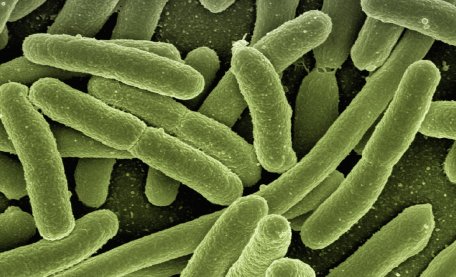
Exeter awarded £14 million for antimicrobial resistance research to fight “next global pandemic"
The University of Exeter and collaborators have recently been awarded £14 million for antimicrobial resistance (AMR) research – widely acknowledged as the “next global pandemic”

Exeter researchers recognised in global rankings
Twenty-one researchers from the University of Exeter have been recognised as leading experts in Clarivate’s annual highly cited researchers list.

Wastewater alert: research highlights antimicrobial resistance risk
As the dumping of untreated wastewater into the sea sparks pollution warnings, new research has identified a “significant risk” of increasing antibiotic resistance associated with wastewater systems across the UK.

Natural England and University of Exeter announce partnership
Natural England and the University of Exeter have announced a new strategic partnership to boost nature recovery.

New £8.7 million project seeks to understand the health risks posed by coastal waters due to climate change
The impact of climate change on health risks, specifically in our coastal waters, will be investigated by new funding.

New bid to 'outflank' antimicrobial resistance
A major new project will investigate the defence mechanisms of bacterial cells, to help stop the spread of drug-resistant genes.

Learning how clothes are made has a “transformative” effect on people’s relationship with fast fashion
Knowing more about how clothes were made can have a transformative effect on people’s relationship with fast fashion, a new study shows.

Community growing schemes and mapping empty housing identified as key sustainability goals for Cornwall
Supporting community growing schemes and mapping unused properties to house local people have been identified as sustainability goals for the coming year by community leaders across Cornwall, according to a new report.

Exeter experts elected to prestigious British Academy Fellowships
Three academics from the University of Exeter have been elected as Fellows of the British Academy.

Scientists discover key genes behind insect migrations
Scientists have identified more than 1,500 genetic differences between migratory and non-migratory hoverflies.

How wildflower seed can help business bloom
The vital role of wildflower seeds in pollinating our food, maintaining biodiversity and contributing to the economy will be highlighted on National Meadows Day (2 July) in two new reports published by the South West Partnership for Environmental and Economic Prosperity Programme (SWEEP).

Introducing the Real Living Wage to Penzance would improve the local economy, new research suggests
Giving Living Wage Town status to Penzance would help improve the local economy and the reputation of the area, new research shows.

Investing in nature is key to levelling up rural regions in the UK says new report
Investing in the environment and thinking more creatively about our reserves of “natural capital” should be at the heart of the government’s levelling up agenda, a new report suggests.
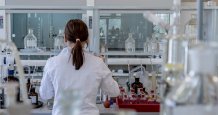
Drug resistance molecule can spread though bacterial 'communities'
DNA molecules called plasmids – some of which protect bacteria from antibiotics – can spread rapidly through bacterial "communities" that are treated with antibiotics, new research shows.

Satellites and drones can help save pollinators
Satellites and drones can provide key information to protect pollinators, researchers say.

Selective breeding sustainably protects honey bees from Varroa mite
A new breed of honey bees provides a major advance in the global fight against the parasitic Varroa mite, new research shows.

Researchers aim to discover how viruses communicate
The different "languages" used by viruses will be investigated by a new research project at the University of Exeter.
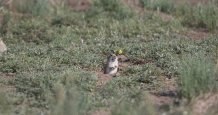
Voles cut grass to watch flying predators
A tiny rodent trims tall grasses so it can watch the skies for flying predators, new research shows.
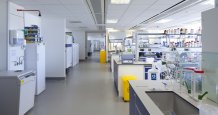
LEAF status for all Exeter labs
All eligible laboratories at the University of Exeter have now achieved Laboratory Efficiency Assessment Framework (LEAF) accreditation.

UK biodiversity renewal project to revive nature and communities receives £10 million investment
Researchers at the University of Exeter have received £10 million to investigate and tackle biodiversity loss in the UK through partnerships and community action.

Three Exeter researchers win Discovery Fellowships
Three University of Exeter researchers have been awarded prestigious Biotechnology and Biological Sciences Research Council (BBSRC) Discovery Fellowships.

Talent in rural areas of Cornwall “wasted” because of poor public transport and lack of internet access, study warns
The skills of talented people in living in rural Cornwall are being wasted because of poor public transport and lack of internet access, a new study warns.
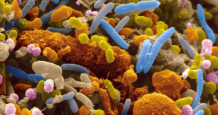
Bid to understand how bacterial defences affect the spread of 'mobile genetic elements'
A major new project will investigate how bacterial defences influence the spread of segments of DNA called mobile genetic elements (MGEs) between bacteria.

Start-up developing new technology to convert solar energy to electricity receives significant funding boost
An innovative start-up founded by researchers at the University of Exeter has received a significant funding boost to further develop new technology that helps convert solar energy to electricity without the need for solar panels.
